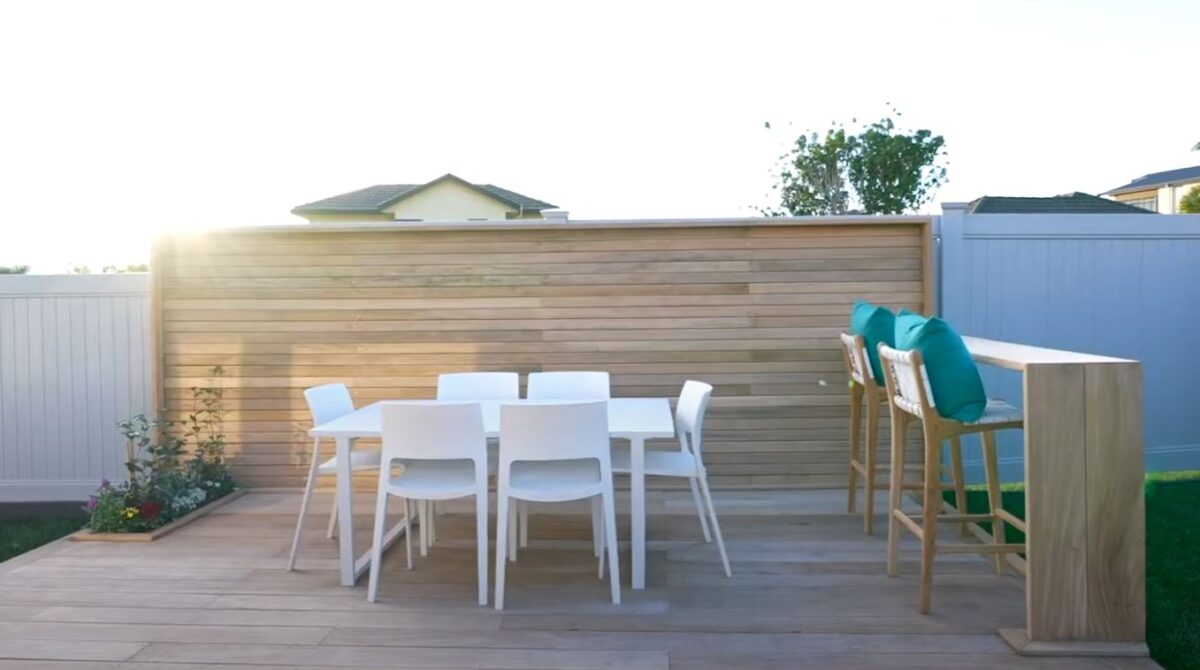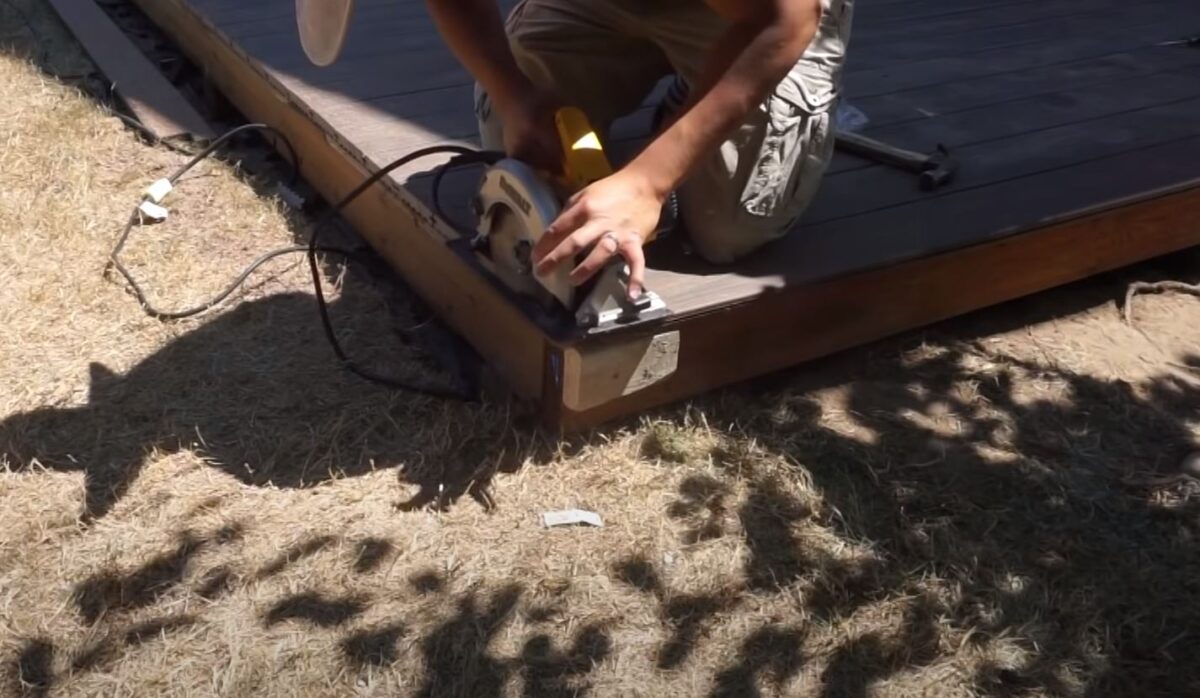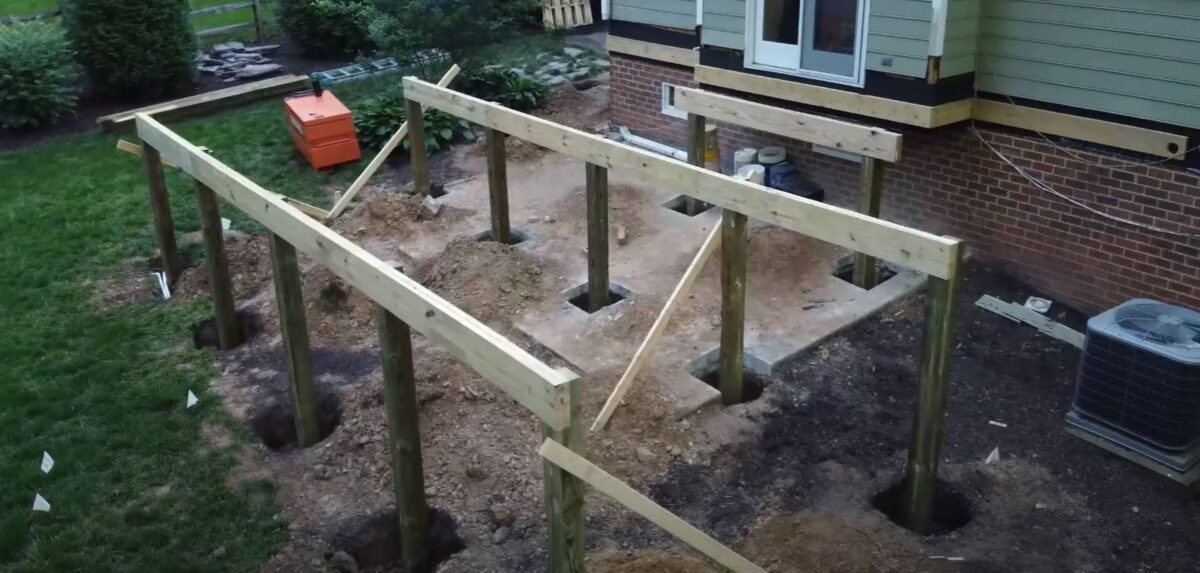Suitability of Floating Decks for Different Soil Types
Floating decks, a popular decking choice in areas like Kelston and Papakura, offer flexibility and ease of installation. However, their suitability varies depending on the type of soil.
Assessing Soil Types for Floating Decks
- Sandy or Loose Soils: Floating decks are less ideal for sandy or loose soils, as these can shift, leading to instability.
- Clay Soils: In clay-rich soils, there’s a risk of movement due to the soil’s expansive nature when wet.
- Compacted Soils: These are more suitable for floating decks, providing a stable and firm foundation.
Considerations for Deck Stability
- Deck Size and Weight: Larger, heavier decks may require a more stable foundation than a floating deck can provide.
- Foot Traffic and Use: High foot traffic or heavy use can impact the deck’s stability in less stable soils.
Alternatives to Floating Decks in Challenging Soil Conditions
- Traditional Footings: In areas with problematic soil, traditional footings that reach below the frost line offer more stability.
- Pile Foundations: Pile foundations can provide the necessary support in unstable soil conditions, though they are more complex to install.
| Soil Type | Floating Deck Suitability | Traditional Footings Suitability | Pile Foundations Suitability | Considerations |
| Sandy/Loose | Less suitable | Suitable | Highly suitable | Risk of shifting and instability |
| Clay | Moderately suitable | Suitable | Suitable | Movement risk due to soil expansion |
| Compacted | Highly suitable | Suitable | Suitable | Provides stable, firm foundation |
| Variable Soils | Depends on condition | Usually suitable | Highly suitable | Requires professional assessment |
Health and Safety Considerations
- Proper Installation: Incorrect installation in unsuitable soil types can lead to safety hazards, such as uneven surfaces or structural failure.
- Regular Inspections: Especially important in areas with fluctuating soil conditions, to ensure ongoing stability and safety.
Floating Deck Advantages
Despite soil limitations, floating decks offer several benefits:
- Ease of Installation: They require less excavation and groundwork.
- Cost-Effectiveness: Generally, floating decks are more budget-friendly.
- Flexibility in Design: Allows for creativity in deck placement and design.
Professional Assessment and Installation
Engaging with a professional service like Quality Fencing Auckland ensures that your deck is suitable for your specific soil type and local Auckland conditions. Professional assessment and deck installation provide peace of mind regarding the safety and longevity of your decking project, tailored to the unique needs of Auckland suburbs like Kelston and Papakura.
Key Takeaways: Choosing the Right Decking for Different Soil Types
Floating Decks and Soil Suitability
Floating decks are most effective on compacted soils, offering stability and ease of installation, but less suitable for sandy or loose soils due to potential shifting and instability.
Traditional Footings for Problematic Soils
In areas with challenging soil conditions, like expansive clay, traditional footings that reach below the frost line provide a more stable and secure option.
Pile Foundations for Enhanced Stability
For soils that are highly variable or unstable, pile foundations offer the best support, ensuring safety and longevity of the decking structure.
Professional Assessment for Safety and Durability
Engaging professionals for soil assessment and deck installation, particularly in Auckland suburbs with diverse soil types, is crucial for ensuring the safety and durability of the deck.
Flexibility and Cost-Effectiveness of Floating Decks
Floating decks are a popular choice for their cost-effectiveness and flexibility in design, making them a viable option for many properties, provided the soil type is compatible.
Frequently Asked Questions on Soil Type Options for Decking
What Soil Type is Best for Floating Decks?
Compacted soil is the best option for floating decks due to its stability and firmness.
Can I Install a Floating Deck on Sandy Soil?
Floating decks are less suitable for sandy soil as it can shift and cause instability in the deck structure.
Is Clay Soil Good for Decking?
Clay soil can be problematic for decking due to its tendency to expand and contract, although it can support decking with proper installation and precautions.
What Are the Advantages of Floating Decks on Compacted Soil?
Floating decks on compacted soil offer ease of installation, cost-effectiveness, and less ground disturbance.
How Do Traditional Footings Work in Different Soils?
Traditional footings, which extend below the frost line, provide stability and are suitable for most soil types, including problematic ones.
Are Pile Foundations Necessary for Decking?
Pile foundations are recommended for decking in highly variable or unstable soils to ensure maximum stability and safety.
What Soil Type Requires the Most Maintenance for Decking?
Soils that are prone to shifting or have high moisture content, like clay or sandy soils, may require more maintenance for decking.
Can Decking Be Installed on Rocky Soil?
Decking can be installed on rocky soil, but it may require more extensive ground preparation or specialized foundations.
How Does Soil Type Affect Deck Longevity?
The stability and moisture content of the soil can significantly impact the longevity and stability of a deck.
What Precautions Should Be Taken for Decking on Moisture-Rich Soils?
For moisture-rich soils, ensuring proper drainage and using moisture-resistant materials are key precautions.
Is It Possible to Improve Soil Conditions for Decking?
Yes, soil conditions can be improved with compaction, drainage solutions, or using a suitable foundation type for the specific soil.
How Often Should Soil be Inspected for Decking Maintenance?
Regular inspections, especially in areas with fluctuating soil conditions, are important to maintain deck safety and integrity.
Do Different Soil Types Affect the Cost of Decking Installation?
Yes, the soil type can affect the cost of decking installation due to varying requirements for foundations and ground preparation.
Can I Install a Deck on Sloped Soil?
Yes, decks can be installed on sloped soil, but they may require additional structural support and careful planning.
Why Consult a Professional for Decking on Challenging Soil Types?
Consulting a professional ensures proper assessment and installation for maximum safety and durability, especially in areas with challenging soil types.



